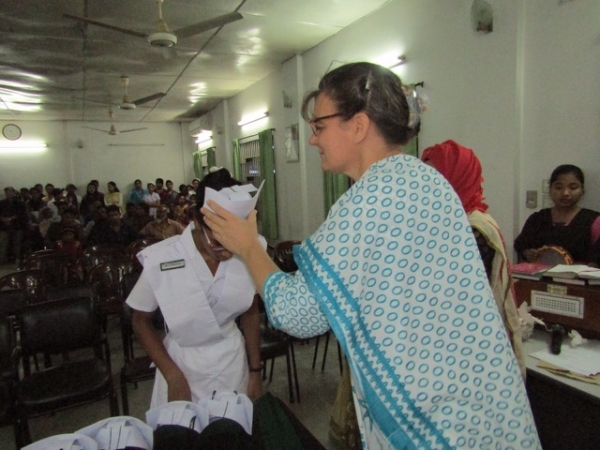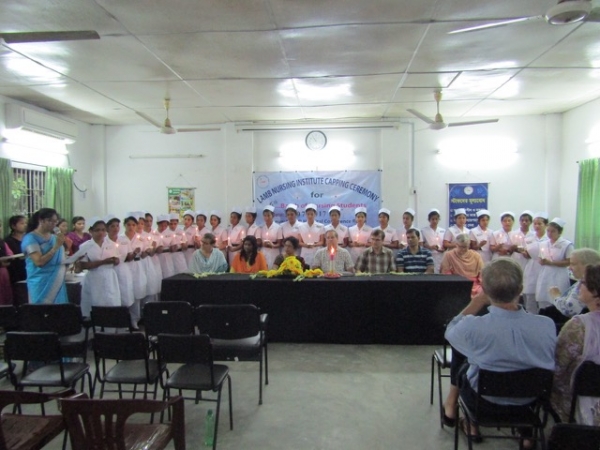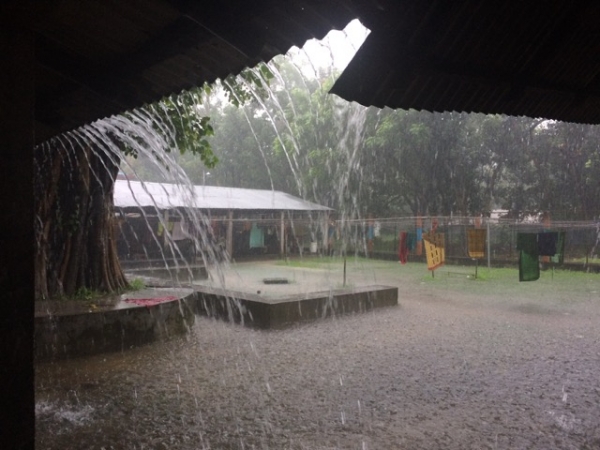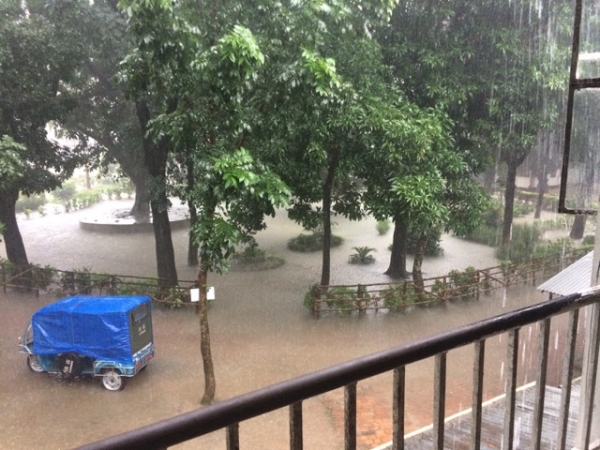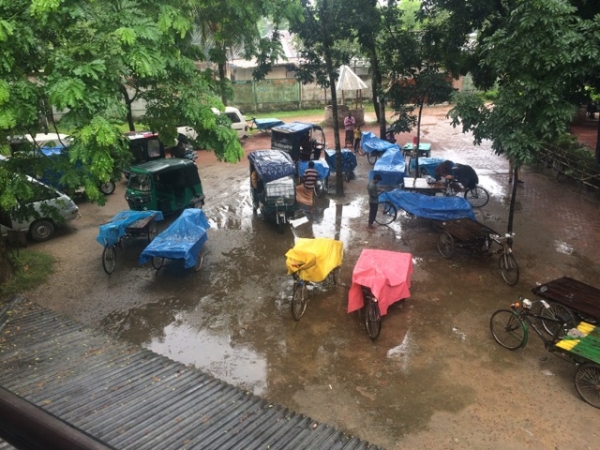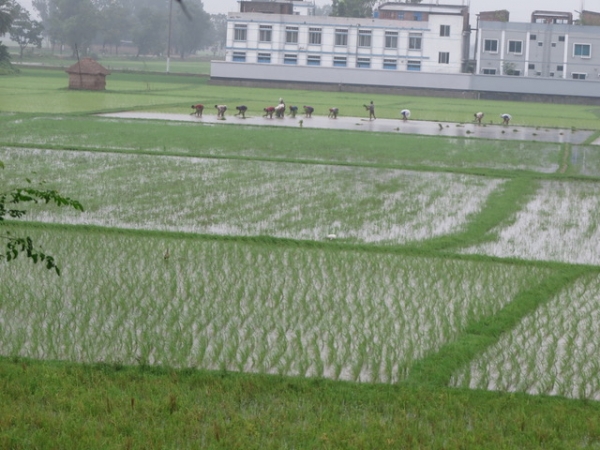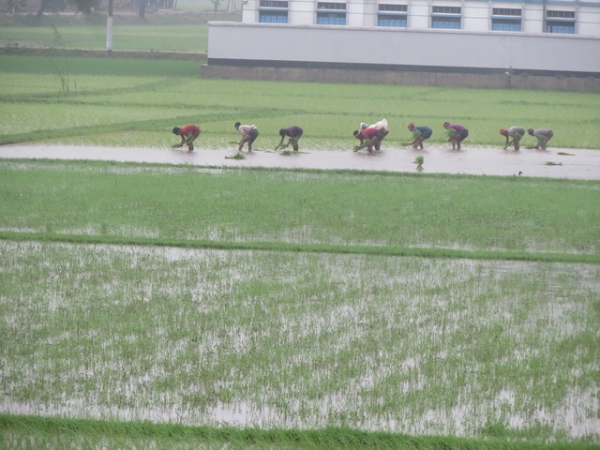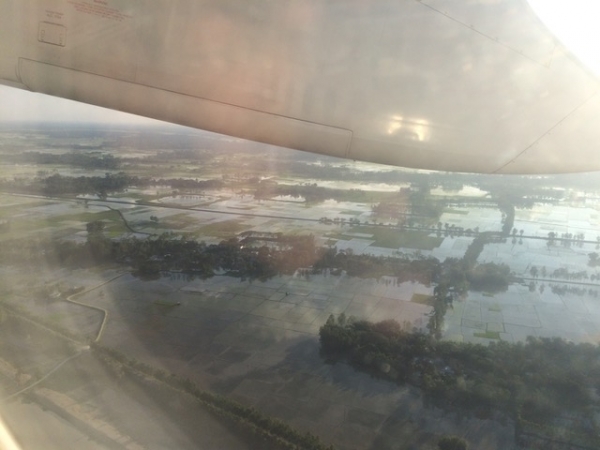My golden Bangladesh , I love you!
Written by Antje on December 4th 2018 21:22
If you think that I am more poetic than usual, you are right! I didn’t come up with this myself, it is the first sentence of the Bangladeshi national anthem. It came to mind as my housemate and I walked around the fields surrounding LAMB Hospital. It is harvest time and the fields shine with their golden color!
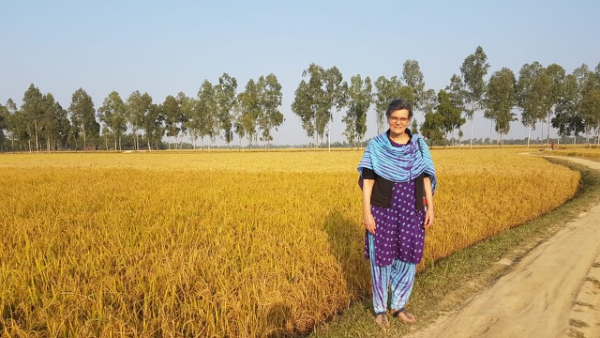
Harvest time means that people are too busy to come to the hospital. And then there is money only after the rice is sold…
The last few weeks we have clearly seen that the winter season is coming. In the picture you can see that I am wearing my fleece jacket. Especially in the early morning and during the night It is rather cool, below 20°C. During the day it gets warmer and then is the fleece jacket not necessary, but apparently I am not that flexible 
During the last several weeks I have had help with surgery. a Dutch surgeon who has been here before while I was away. The first 2 weeks that he was here, there was also a British anaesthetist. Thus I planned high risk patients. We told the patients beforehand that we would call them when we knew the anaesthetist would be here.
One of the patients was a 2 year old boy with a congenital defect of the intestine (Hirschsprung’s disease). In the last few years I had done the necessary operation a few times but a few of the children had serious complications after the operation and some also died. Thus last year I decided not to perform the operation any longer unless I could operate with another surgeon. It was a joy to do this operation together. The child healed quickly and was able to go home in a few days. He does have a stoma that we will remove in a month or so.
Most of the other patients on the list never came. It was very interesting that several patients promised over the telephone that they would come but didn’t. When we tried to call the telephone was not answered. It is interesting to note in this culture that it is not so bad not to come than it is to say on the telephone that you would not come…
Our midwive training program had an open day. The day was opened with speeches of local officials and several people from the project (the picture shows my speech). Afterwards there were stands showing what the students were learning. Of course these stands also had to be visited by the officials!
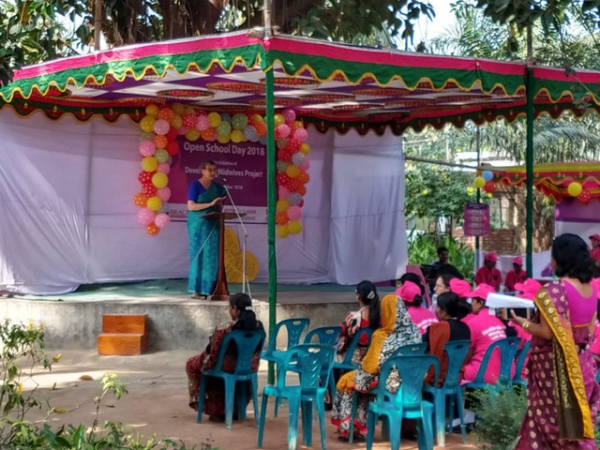
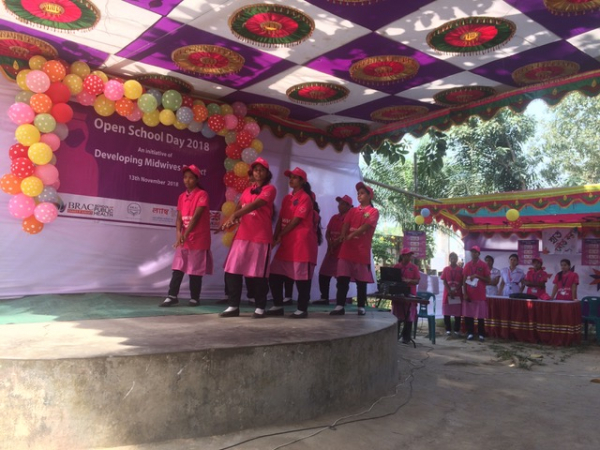
Here you see several students doing a dance demonstrating the 6 steps to washing your hands
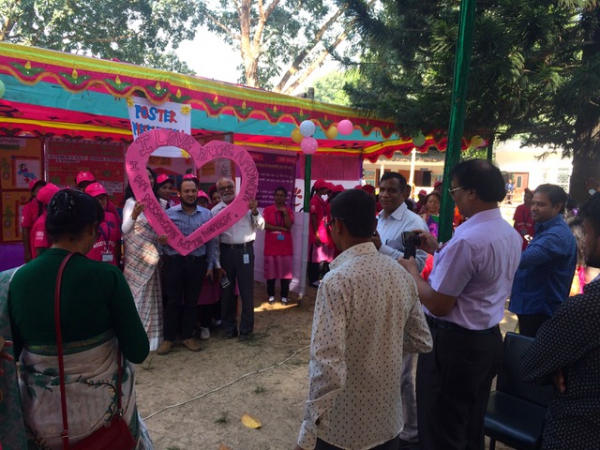
The chairman from one of the local authorities is photographed ‘I love being a midwife’
And now I have 2 weeks of vacation! I will go with a friend to a guest house from a hospital in the south of Bangladesh. There it is very quiet and on a large piece of land. We can’t hear any traffic! Birds and sun are there! I need a vacation and hope to get rested up. Tomorrow we will go to the beach. It takes an hour with the bus to get there…
Woodcutters and rain
Written by Antje on September 17th 2018 20:16
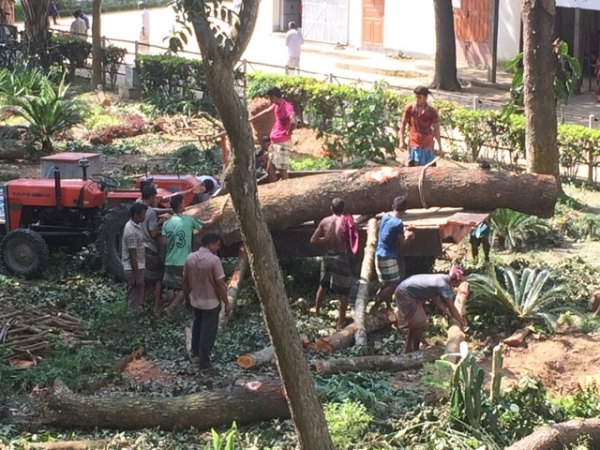
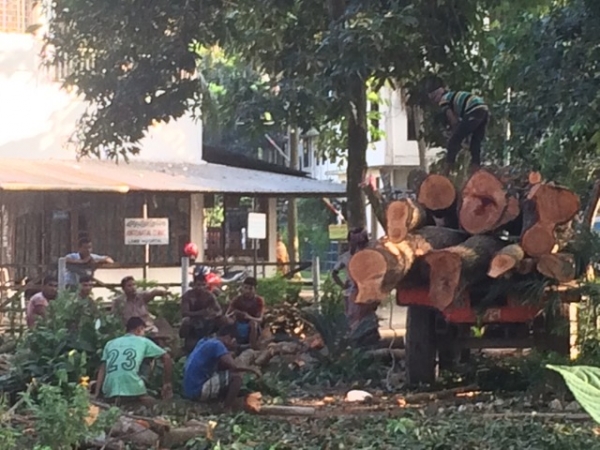
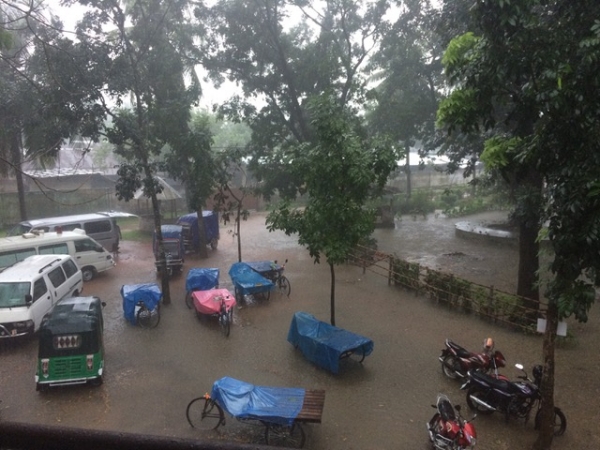
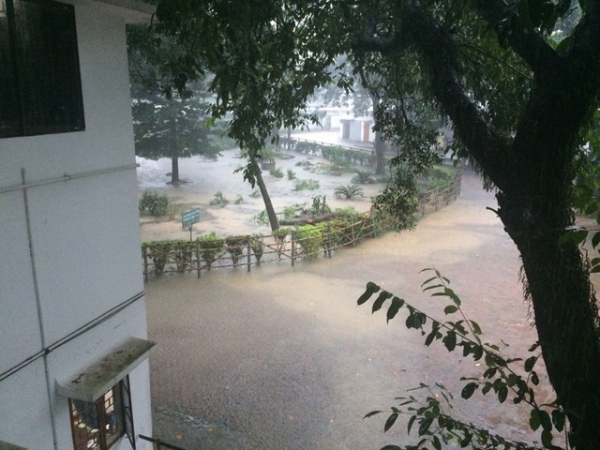
Name giving
Written by Antje on July 16th 2018 21:55
Recently, I was invited to a celebration with one of our co-workers for giving her children a name. In Bangladesh, people usually wait a few months before naming a child.
This co-worker is a women who works with us in the rehab center for children. I know here already from my first term in Bangladesh in 1997. Being 16, she attempted suicide by jumping before the train and she lost her lower legs on both sides. She now walks on two prosthetic legs and manages quite well. Her life hasn’t been easy after this recovery. Her first marriage ended early on with her husband abandoning her, and with difficult she learned to stand on her own (financial) legs, which is quite a challenge here. A woman is always expected to have a man a guardian, her father if she is unmarried or her husband when married. If you are deserted by your husband, you return to the home of your father, but you are not always welcomed back. In her situation, with her father passed away, her older brother provided for her at least in part, but she built her own little house, and slowly added piece by piece.
Last year, she married for the second time. It seemed to be a good man, they got along well together and we had hope that her life would become more stable. Unfortunately, this man turned out to have a second family at about 3 hours travel distance from us. Just after she had become pregnant of twins, her husband essentially deserted her, taking along a large sum of money that she had borrowed to buy land. Her husband stops by once in a while, but overall this woman is left to her own.
Fortunately, other co-workers in the rehab team have taken her in in their midst, and they look after her. After two months, she delivered a healthy set of twins, a boy and a girl, and now we were invited to celebrate their name giving, Nayim and Rupsie. The ceremony with the Imam had already taken place when we arrived. We had the honor to hold the children and to eat rise…
We are thankful that the children are growing well, and keep trying to support her. We pray that the babies will grow up to become strong children, and that they will taste God’s love.
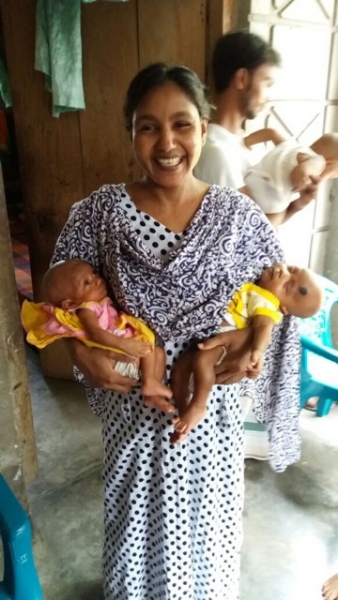
With the babies
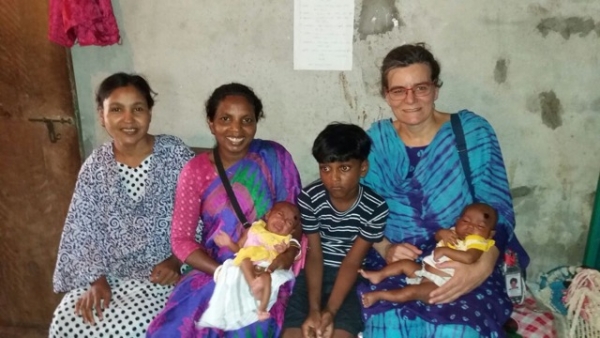
Babies, mother and visit
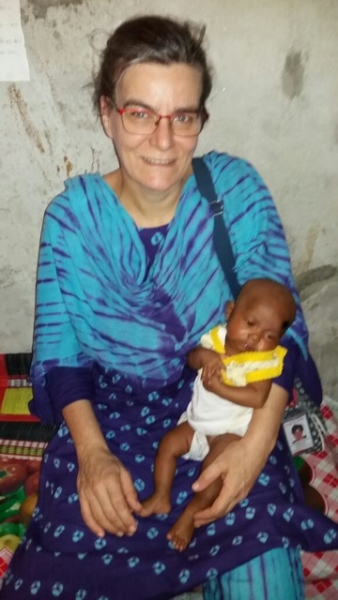
Always great to hold a baby!
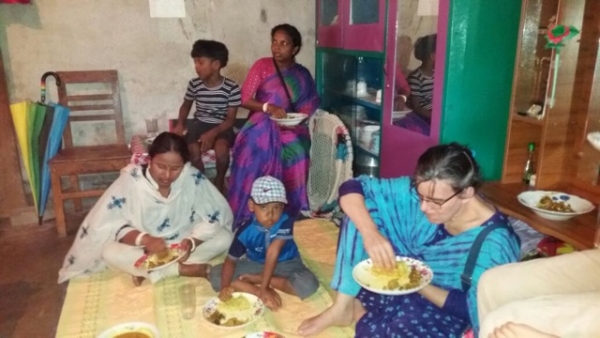
The meal, with rice and goat curry, lentils and vegetables; we eat with our hands
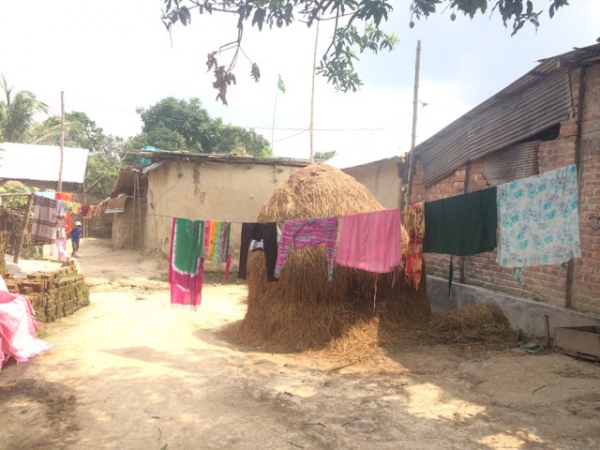
The courtyard before the house: the hay pillar, clothes on the line, and bricks waiting until there is enough money to continue building.
Happy New Year (1425)!
Written by Antje on April 17th 2018 22:14
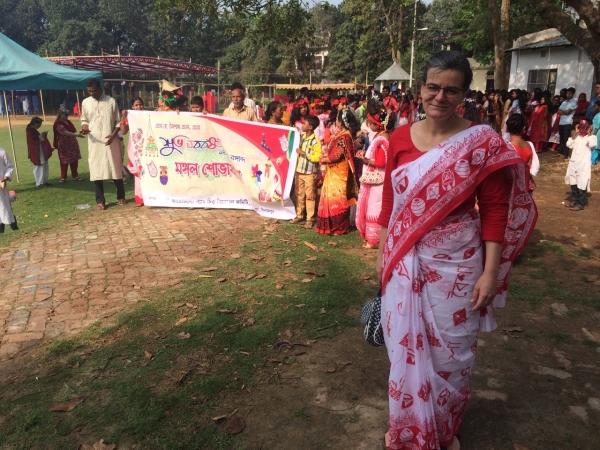

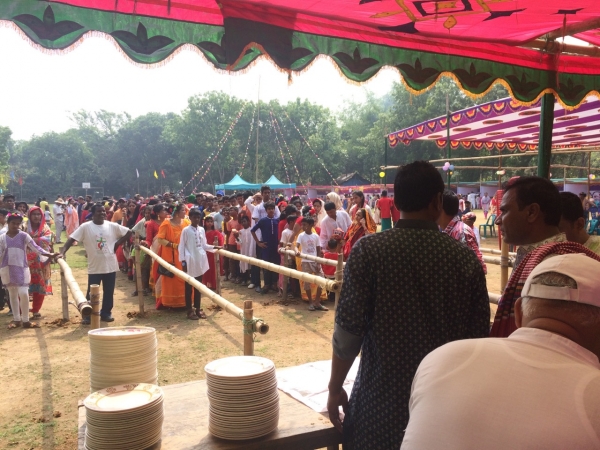
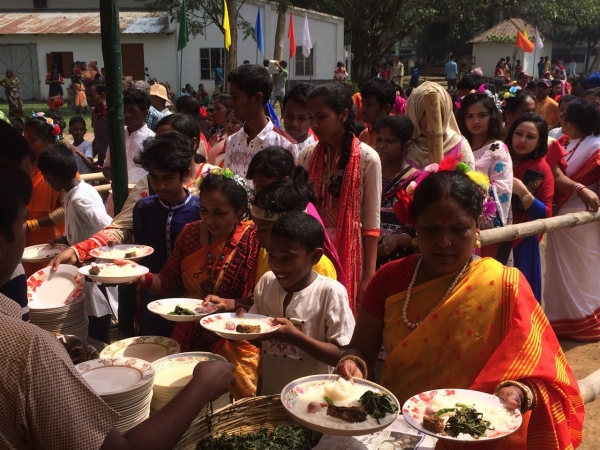
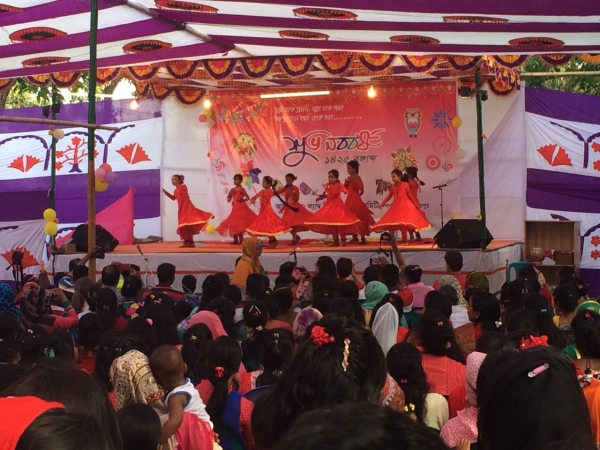
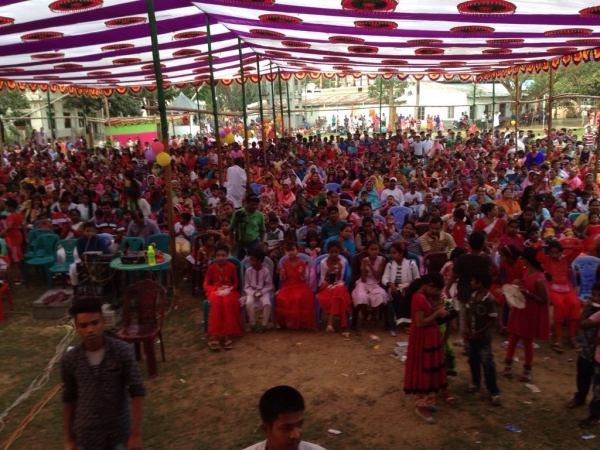

Birthday celebration!
Written by Antje on March 22nd 2018 13:28
It’s already a week since I celebrated my birthday. My parents came to celebrate the occasion together. It’s a real privilege to have them here and to show them how I live and work. And of course, they were the couriers of a huge pile of cards and presents! Because it’s a once in a lifetime opportunity that you get to celebrate your 50th, I decided to hold a big party. I invited all the staff here from overseas, and colleagues and friends – a total of 100 people! We had a BBQ and rice and lots of good conversation. I’m so thankful that I’m so healthy, that my parents are alive at this time, that I have reached this age, and that I can work here in Bangladesh!
A few photos of the party:

With my parents.
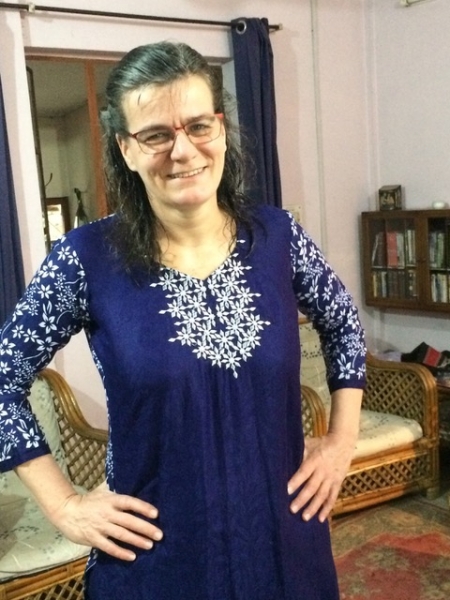
At home in new clothes for the occasion.

BBQ chicken nearly ready!
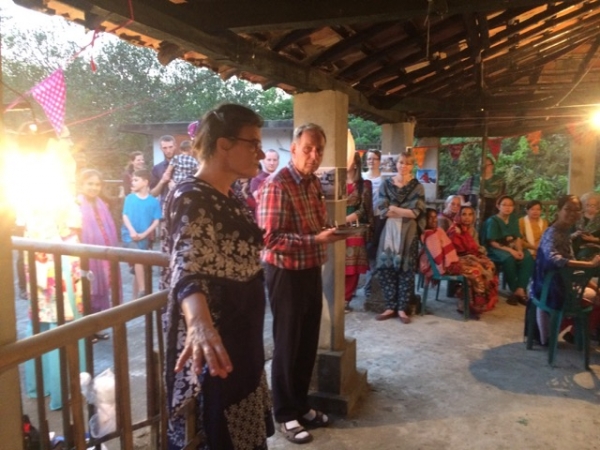
Short speech to start the celebrations.
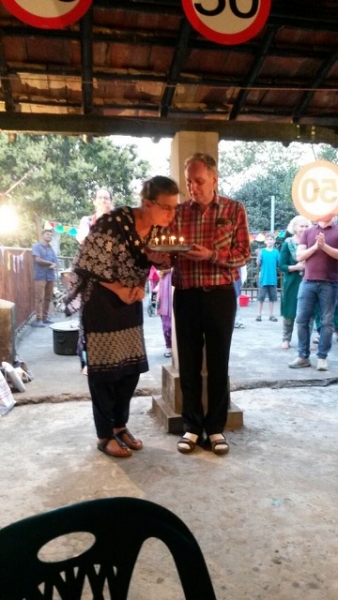
Blowing out 5 candles.

Reading all the birthday cards...
Winter almost over!
Written by Antje on February 10th 2018 21:23

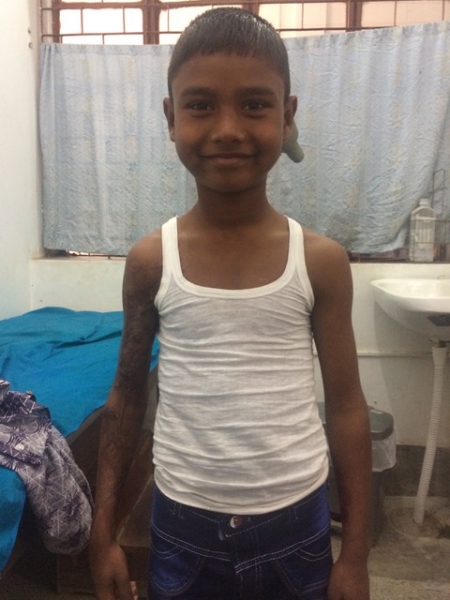
Weeks of parties!
Written by Antje on December 31st 2017 17:01
In my last blog, I wrote about the rice harvest. Well over a week ago, I came across this scene. These men beat the sheafs of rice against boards to beat the rice grains out.
The rice is cooked in water, then dried (and some kinds get cooked and dried a second time), after which the rice grains are separated from the chaff. Unfortunately, this process makes the time of the rice harvest a dangerous time for kids. We have already seen several children in the hospital with burns because they fell into this hot mass of cooking rice.
On December 16, Bangladesh celebrates ‘Victory Day’, the day in 1971 that brought an end to the 9 month independence war after their declaration of independence. It is a day of games for staff and their kids, with a cultural program in the afternoon.
This year, I bought a sari in the colours of Bangladesh (red and green).
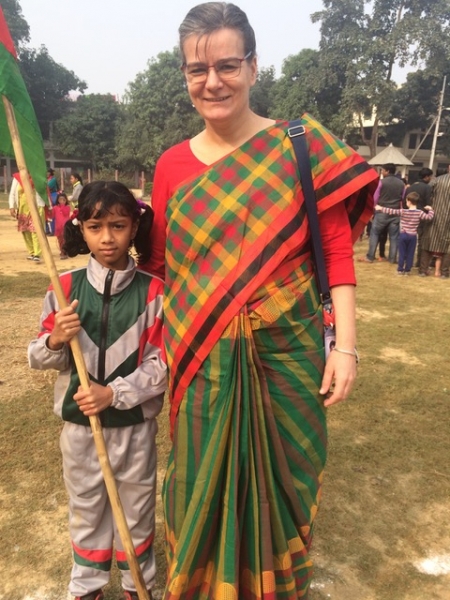
Below you see a video in which I participate in a race to carry water in my bare hands from one side to the other. It turns out that running in a sari is quite an feat! Our team of 3 won.
The cultural program:
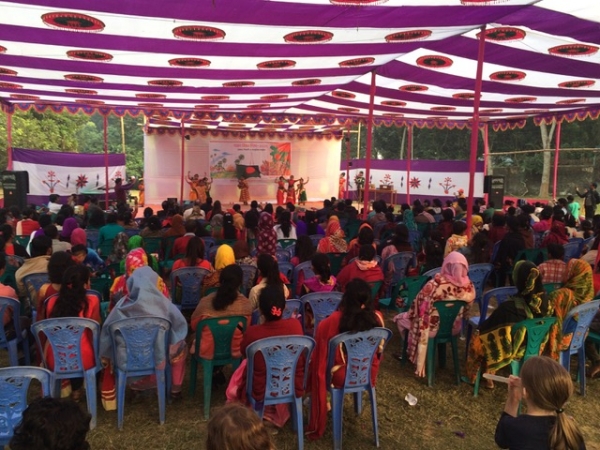
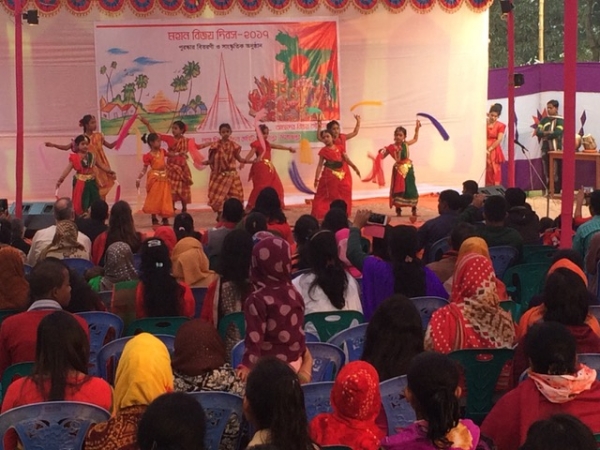
In my last blog, I show for Christmas stars were covered with red paper and plastic. Here is an example of these stars mounted on bamboo poles above the buildings of the hospital.
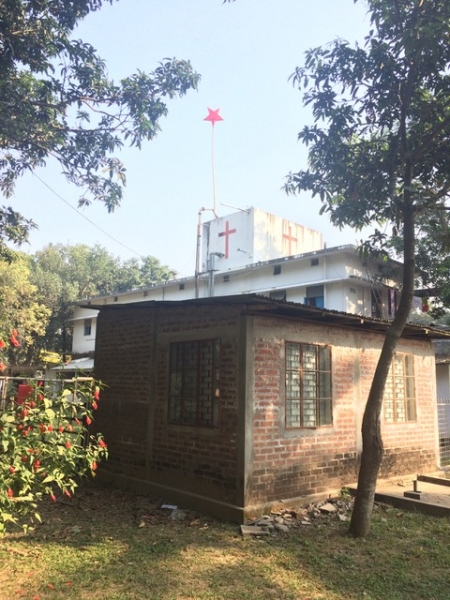
On the Thursday before Christmas, we had a Christmas celebration for the hospital. The entrance was decorated…
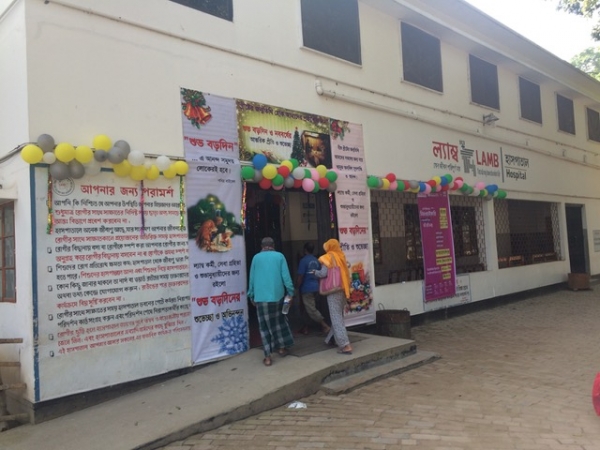
…we had a meditation in the waiting room of the clinic (notice the decoration with the many balloons)…
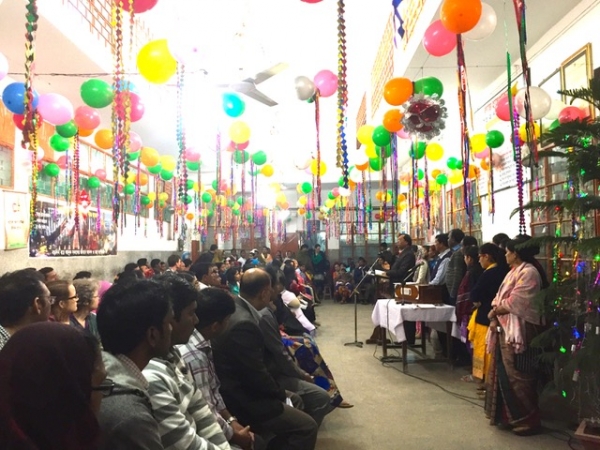
…and Jesus’ birthday cake was cut. It is always a wonderful opportunity to tell our staff and patients what we as Christians believe about Christmas.
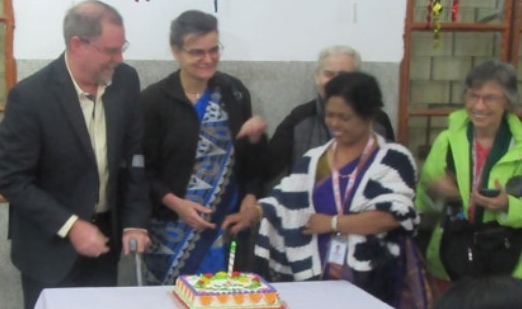
Of course, we also had a beautifully decorated church for Christmas (yes, the lamps in front of the church flash red and green!)
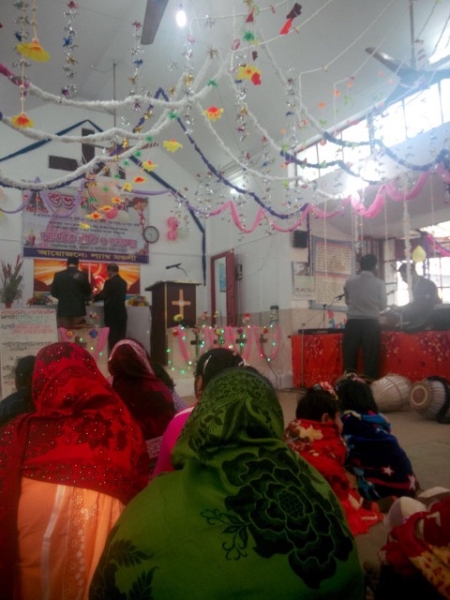
We dressed up for the occasion…
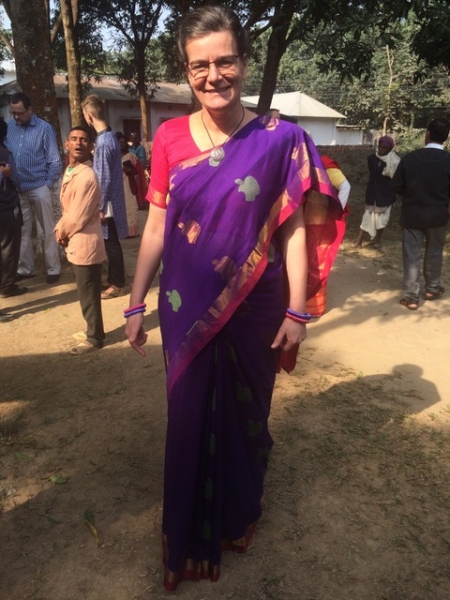
…and celebrated further by sharing a meal of rice and goat curry. This year I helped serve.
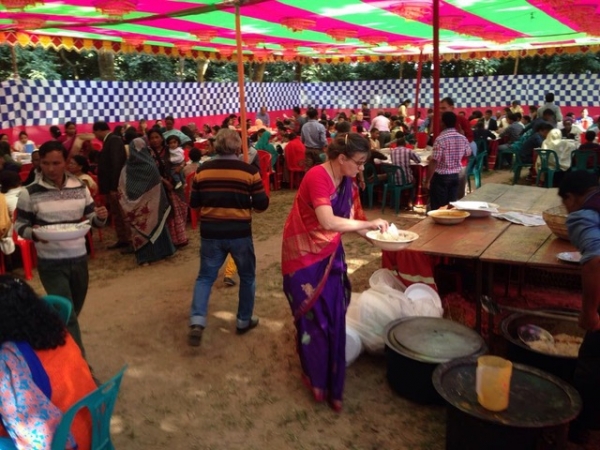
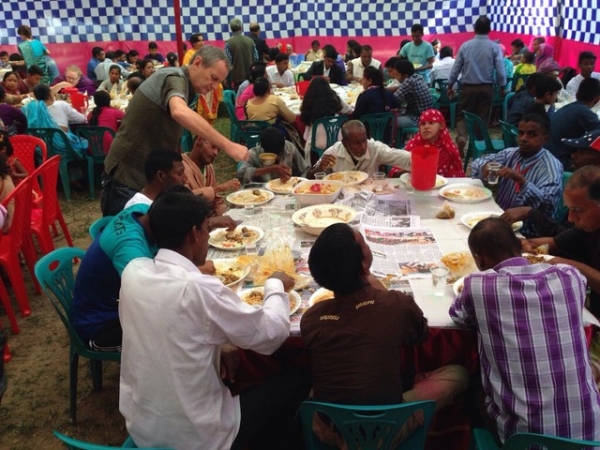
On second Christmas Day, we had a wedding celebration! Joati, one of our ‘medical assistants’, got married. Medical assistants do a 3 year internal training with us, and function more or less like family doctors in our organisation. They are the first to see a patient and do some of the treatment themselves by certain protocols. All other patients are referred to the doctors. Without our medical assistants, we would not be able to run the hospital.
The day before the wedding, Joati had her ‘gaye holud’, which means as much as ‘yellow on the skin’. It is the Bengali version of the bachelorette party.
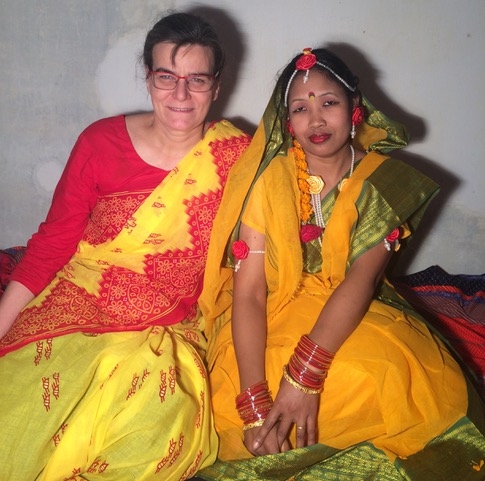
Everybody gets a chance to besmear the bride (or groom) with kurkuma mixed with oil. In addition, you give her a small, sweet treat and a blessing. The small girls next to Joati also enjoy the attention. In the weddings, the girls sitting next to the bride are usually a bit older (the bride’s sisters, for instance). The groom has several men sitting beside him, but the feast is for all the family and friends of either the bride or the groom.
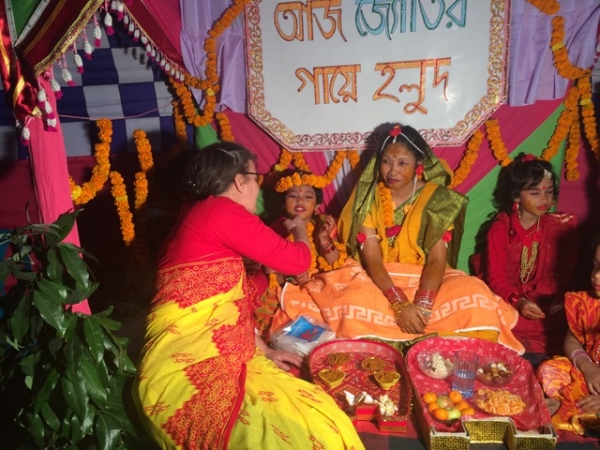
A day later was the wedding. Joati was almost unrecognizable with all the make-up, but she seemed to get along well with the groom and there was much laughter during the service. That is not always the case. Bride and groom hardly know each other over here, most marriages are arranged. Even when they did chose one another, it is often not on the basis of a long friendship.
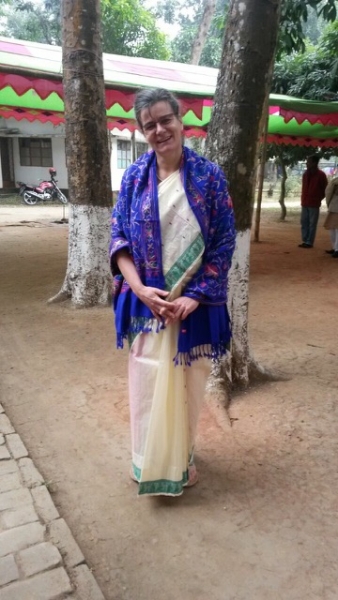
After the service, Joati and her husband had to negotiate with a group of young men to be able to leave the church. I was told that this serves to encourage the interaction between the groom and the young family members of the bride.
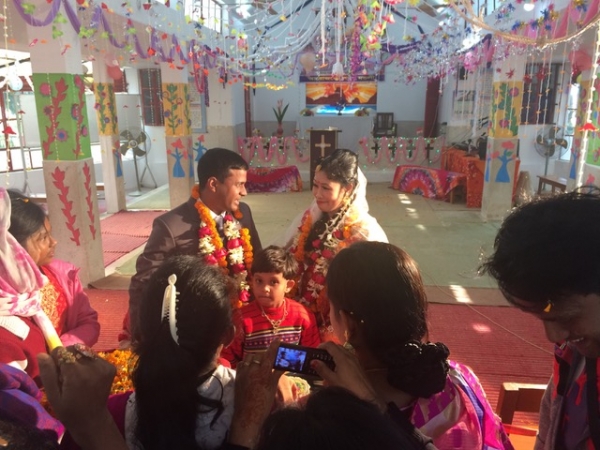
Afterwards, a rice meal was served for everyone, and the couple left during the afternoon for the village of the groom, where they would be received the next day with a feast and rice meal in honour of the bride.
Yet another day later, there was a similar rice mail to receive the bride of another family. This young man got married in Rajshahi and then ‘brought’ his bride to her new house. We are rice and could give a present. In the past, this bride would have been taken in into the household of the parents of the groom, but in this modern time there is a better chance that they will work and live in their own place.

I hope I didn’t bore with with the all parties, but looking back through my pictures, this was the only thing I found to share…
I wish you all a blessed 2018!
Begum Rokeya day and advent
Written by Antje on December 20th 2017 10:54
Earlier this month, on the 9th of December, was the celebration of Begum Rokeya day. A time when people remember Begum Rokeya, an advocate for women’s education and pioneer of emancipation at the beginning of the 20th century. Our focus was on the struggle against violence to and oppression of women – as you can see on the banner: “Leave no one behind: End violence against women and girls.”
There was a march consisting mainly of our midwifery students and there were also speeches. This is a theme that can never receive too much attention in a country where girls sometimes can’t even go to school because it is just not safe enough, and where violence committed by a husband/father is often considered perfectly normal. The text around the frame which I am holding in the photo reads: “Zero tolerance for (gender) based violence in education.”
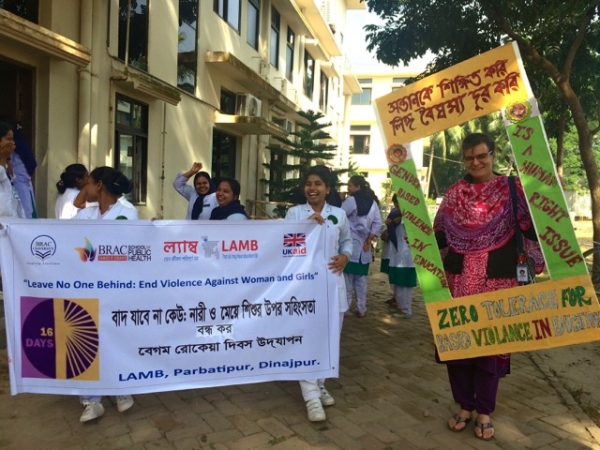
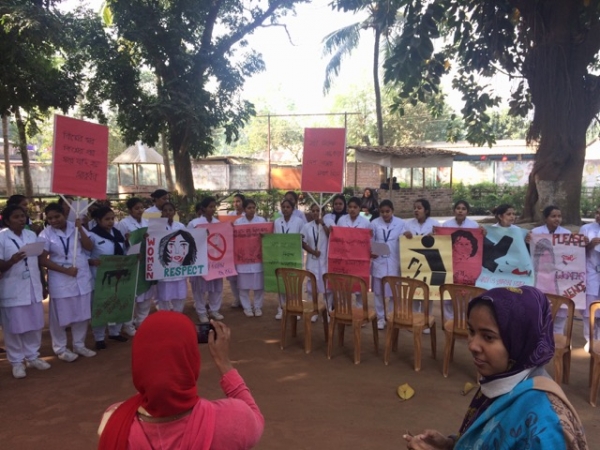
It is also here the season of Advent and we are fast approaching Christmas. Part of the preparations here in the hospital grounds includes the setting up of illuminated stars above the rooves. Bamboo structures are covered with coloured paper and plastic, mounted on tall bamboo poles and positioned strategically around the site.
This is something we always do here, and it is also seen over the whole country. Wherever there are Christians you can see shining stars above the rooves as Christmas approaches.
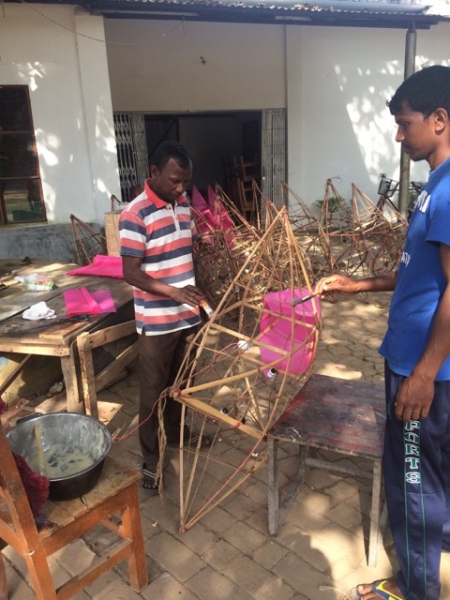
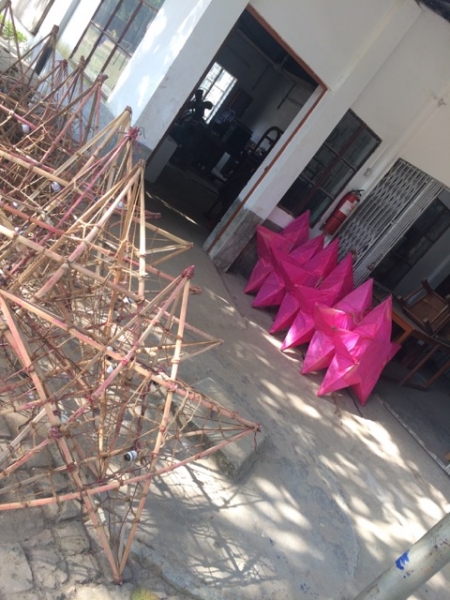
To finish with, some photos of the gathering-in of the rice harvest. There were severe floods in the summer and people were very concerned that the yield would be poor, but actually that was not the case. Harvest time was indeed a few weeks later than normal, but the overall quantity reaped was sufficient.
We really see the results of the delayed harvest here at the hospital – people are just too busy to attend for appointments. At the same time we treat wounds resulting from their activities: men with cut fingers and children whose fingers have been damaged in threshing machines…
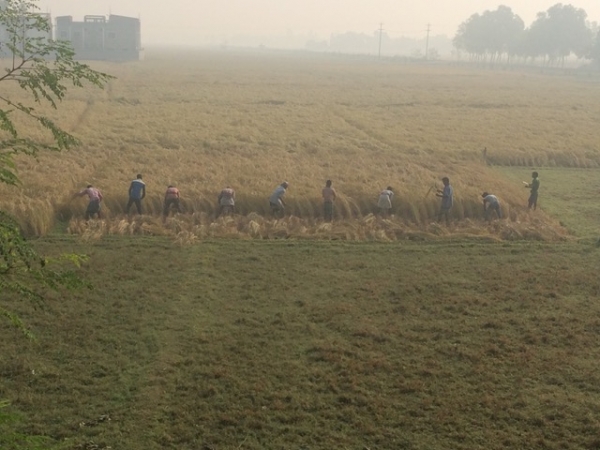
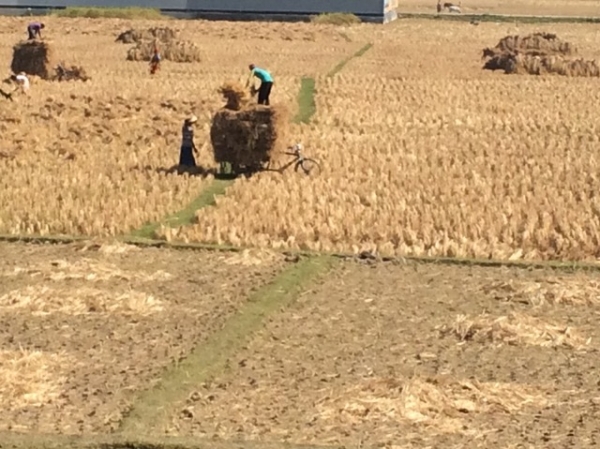
And finally, a photo of me at work and of a child with an abdominal wall defect (omphalocele) which she had since birth. We don’t usually have any doctors available to give the anesthesia, but with this child we waited until the 2-week visit of a medically qualified anesthetist. During the operation to close the abdominal wall, it turned out that the entire liver lay outside of the abdominal cavity and it was very difficult to push it inside. Very worrying if something would kink after the liver and bowel had been forced back in. Happily it all turned out fine and the child was able to go home after a week. In the course of time, the mesh I used to close the abdomen will need to be removed, but that won’t need to be for a couple of years.
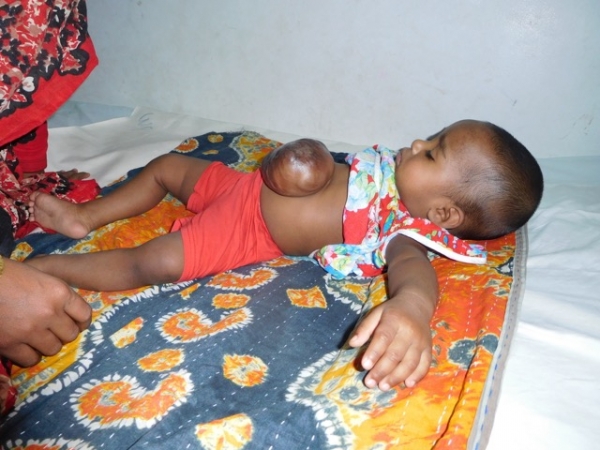
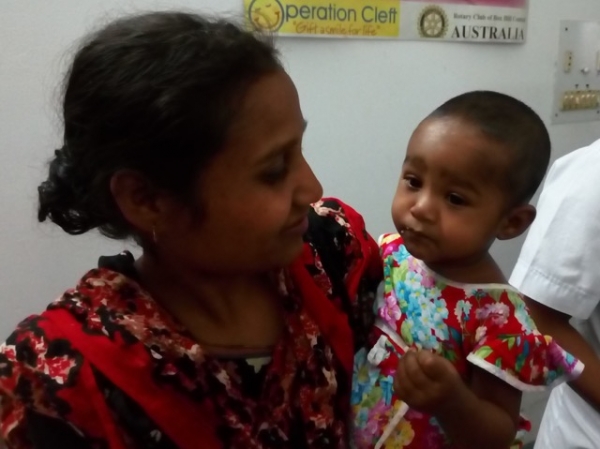
Flood in Northwest Bangladesh
Written by Antje on September 5th 2017 14:40
In my last blog, I wrote that the rainy season is in full swing here. On that day, I took the pictures below of the planting of the rice. I couldn’t know yet then that it would rain for 2 days without interruption, raining as much in two days as it would normally rain in the entire month!
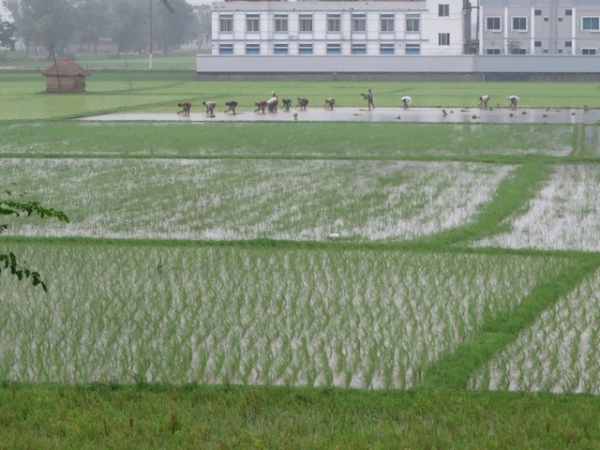
At the end of that rain, my view was this:
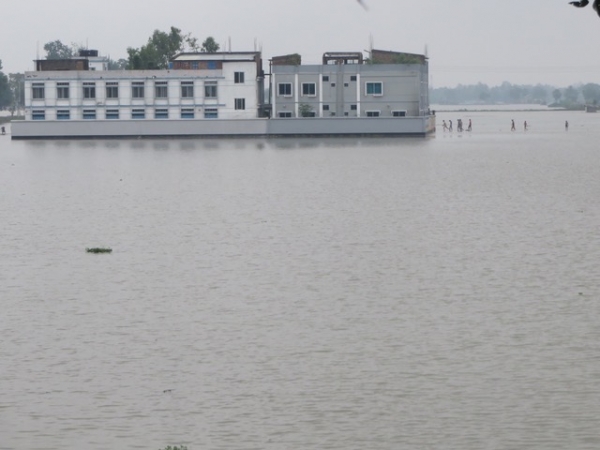
There was also water on our property, but with limited damage. In several locations, water threatened to enter the houses, but for us the rain stopped just in time. Unfortunately, a few snakes entered the houses!
In the immediate surroundings of the hospital, the damage was limited. In the past 2 weeks, the water resided sufficiently so that they could plant the rice anew. A portion of the recently planted rice had died, but part of it survived. People try to plant anew in the fields where most plants have died. Unfortunately, these plants are now more expensive because of the increased demand.
A little further away from the hospital, the rain and floods have caused more damage. In the provincial capital of Dinajpur, a dike broke through and part of the city was flooded. Also, part of a railway track on a dike between our town of Parbatipur and Dinajpur have been washed away, with the result below. The trains that I hear very clearly through my bedroom window will not ride for two weeks. To my amazement, it only took 2 weeks to repair the tracks, so this week, the trains are riding again.
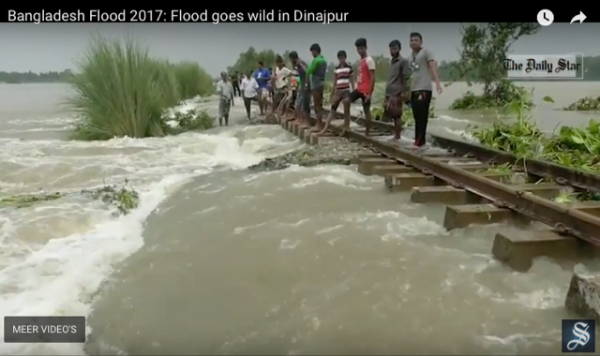

Below are some pictures from the news of the floods. On this map, I have indicated about where we are amidst all these floods:
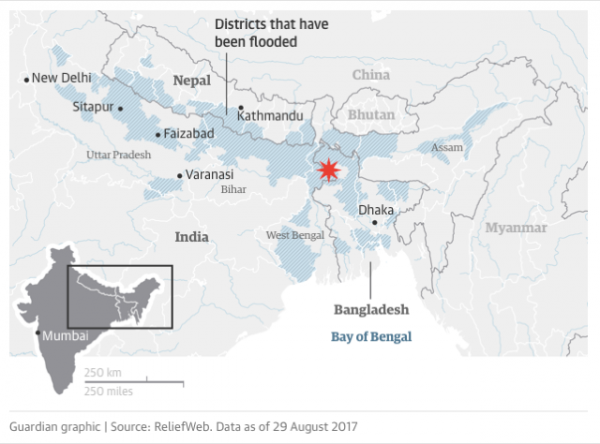
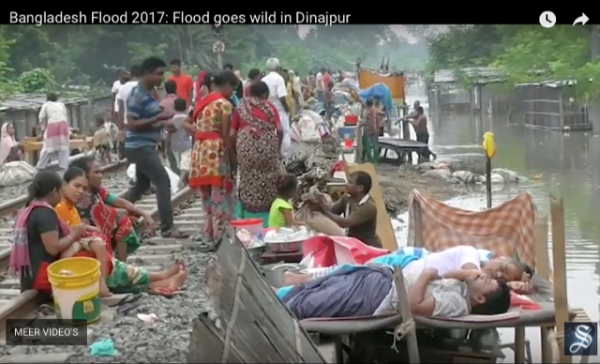


An additional problem in our region is that traditionally, houses are build form clay. These homes cannot sit in water for very long, so they collapse (I don’t have any picture of this). It’s always the poorer people who live in the lower areas and who have the worst houses, who are hardest hit by these floods.
Our project has been asked to cooperate with UNFPA (United Unations Populations Fund) for emergency relief help. This is not in our immediate surroundings, but in the larger working area of our community health and development department. We have local staff on location that can help to ensure that the help reaches those who need the help most. Relief aid will consist of food supplies, help with mobile stoves, and a number of health clinics.
This week, we had an evening to make emergency packages, which include soap, disinfectant and a blanket. We also made packages with rice, lentils, oil and salt. The picture below didn’t turn out very well, but the show volunteers making these packages. That will take place several more times in the next few weeks.
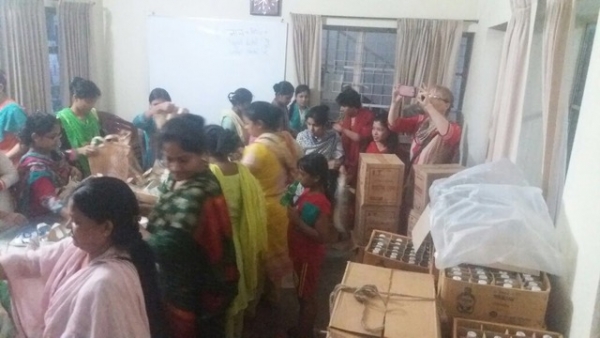
The hallway in which we filled bags with rice and lentils:
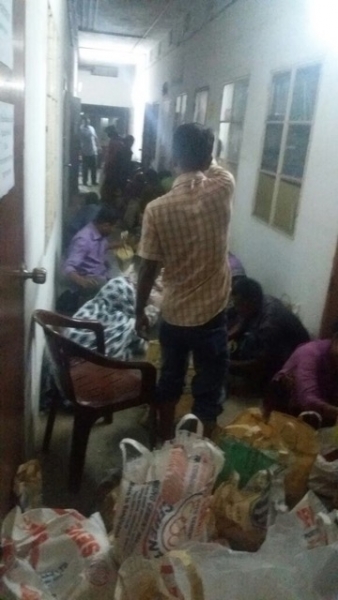
In summary, personally I suffer no further consequences of the floods, but in the wider area these are certainly very noticeable. On the other hand, the country is getting ready for the Eid Festival (Muslim sacrifice feast). Cows and goats are sold everywhere, and made ready for the sacrifice ritual tomorrow. Busses and trains over overflowing with travelers, leaving the cities to go to their villages.
Concerning my work: yesterday we had a visit of the Civil Surgeon, the highest health authority in our district, to inspect us for our hospital license. We have a new Civil Surgeon, and he was very positive about what he saw, so we hope to get the license again for another year.
Below you can watch the video of which a few screen shots were taken.
New nursing students and the rainy season
Written by Antje on August 22nd 2017 11:30
